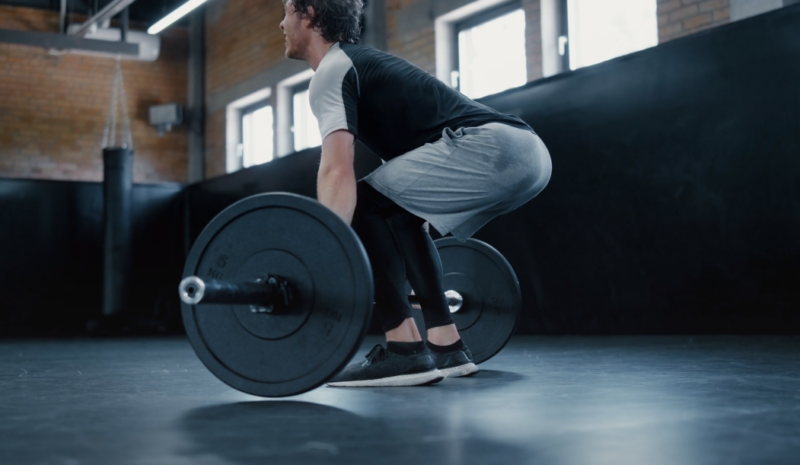Building muscle while in a calorie deficit is a topic that often stirs debate among fitness enthusiasts and experts. This blog post aims to explore this complex subject, backed by scientific insights and expert opinions. We’ll dissect the mechanisms of muscle growth, the role of nutrition, and practical strategies to achieve muscle gain in a calorie deficit.
The Role of Calories in Muscle Development

Muscle growth, scientifically known as hypertrophy, is influenced by various factors, including genetics, training intensity, and nutrition. Calories play a pivotal role in this process. They provide the energy required for workouts and the raw materials needed for muscle repair and growth.
However, the common belief is that a surplus of calories is essential for muscle building, which raises the question: can muscle still be built when you’re consuming fewer calories than your body burns?
The Balance Between Muscle Protein Synthesis and Breakdown
Muscle growth occurs when the rate of muscle protein synthesis exceeds muscle protein breakdown. This balance is delicate and can be influenced by dietary intake. In a calorie surplus, the body has ample energy and nutrients, promoting muscle protein synthesis.
Conversely, a calorie deficit typically signals the body to conserve energy, potentially slowing muscle protein synthesis. However, recent studies suggest that muscle growth in a calorie deficit is possible under certain conditions.
The Impact of Training and Nutrition Quality

Training stimulus and nutrition quality are crucial in this equation. Resistance training, particularly heavy lifting, can stimulate muscle growth by causing microscopic damage to muscle fibers, which then repair and grow stronger.
Additionally, the quality of the calories consumed plays a significant role. High-quality protein, adequate micronutrients, and timing of nutrient intake can influence muscle protein synthesis even in a calorie deficit.
Strategies for Building Muscle in a Calorie Deficit
Protein is the building block of muscles. Optimizing protein intake is crucial for muscle growth, especially in a calorie deficit. According to the Journal of the International Society of Sports Nutrition, a higher protein intake can mitigate muscle loss during calorie restriction. Aim for a protein intake of around 2.2 grams per kilogram of body weight, focusing on high-quality sources like lean meats, fish, eggs, and plant-based alternatives.
Tailoring Your Workout Routine
Your workout routine should be tailored to support muscle growth. Emphasize compound movements like squats, deadlifts, and bench presses, which work multiple muscle groups and elicit a significant anabolic response. According to Sports Medicine, resistance training with a focus on high volume and moderate to high intensity is effective for muscle hypertrophy, even in a calorie deficit.
Importance of Recovery and Sleep
Recovery and sleep are often overlooked aspects of muscle growth. Adequate sleep and rest days are essential for muscle repair and growth. As per a study published in the Journal of Clinical Sleep Medicine, insufficient sleep can impair muscle recovery and growth by affecting hormone levels and reducing muscle protein synthesis. Aim for 7-9 hours of quality sleep per night and include rest days in your training schedule.
Balancing Calorie Deficit and Muscle Growth

Not all calorie deficits are created equal. A mild to moderate calorie deficit can allow for muscle growth while still losing fat. However, a severe calorie deficit can lead to muscle loss. According to The American Journal of Clinical Nutrition, a moderate calorie deficit of about 500 calories per day can lead to fat loss while preserving muscle mass, especially when combined with resistance training.
Role of Macronutrient Distribution
Macronutrient distribution plays a vital role in muscle growth in a calorie deficit. A higher proportion of protein, moderate carbohydrates, and healthy fats can support muscle growth and energy needs. Carbohydrates are particularly important around workout times to fuel exercise and aid recovery.
The Importance of Long-Term Consistency
Building muscle in a calorie deficit is not a quick process. It requires long-term consistency in both diet and training. Gradual changes in body composition are more sustainable and healthier than rapid transformations. Patience and persistence, along with regular adjustments to your diet and training program, are key to success.
Frequently Asked Questions
Can age affect the ability to build muscle in a calorie deficit?
Yes, age can impact muscle building. Older adults may experience slower muscle growth due to hormonal changes and reduced muscle protein synthesis efficiency. However, with proper nutrition and exercise, muscle growth is still achievable.
Is it necessary to take supplements to build muscle in a calorie deficit?
While supplements like whey protein, BCAAs, and creatine can be helpful, they are not essential. A balanced diet rich in protein and nutrients is usually sufficient. Supplements should be considered as an addition, not a replacement for a healthy diet.
How does hydration affect muscle growth in a calorie deficit?
Adequate hydration is crucial for overall health and can indirectly support muscle growth. It aids in nutrient transport, muscle recovery, and exercise performance. Dehydration can impair these processes and hinder muscle growth.
Can a vegan diet support muscle building in a calorie deficit?
Yes, a well-planned vegan diet can support muscle growth. Focus on diverse protein sources like lentils, chickpeas, tofu, and quinoa, and ensure adequate intake of essential amino acids, vitamins, and minerals.
How long should I be in a calorie deficit to see muscle growth?
The duration varies depending on individual goals, body composition, and response to diet and exercise. It’s important to monitor progress and adjust the diet and exercise plan as needed. Consulting with a fitness or nutrition professional can provide personalized guidance.
Does the type of exercise matter for building muscle in a calorie deficit?
Yes, resistance training, especially exercises that target multiple muscle groups, is most effective for muscle growth. Incorporating a variety of exercises, including weightlifting and bodyweight exercises, can optimize muscle development.
How do I balance cardio with muscle building in a calorie deficit?
While cardio is important for overall health, it should be balanced with resistance training. Too much cardio can interfere with muscle growth. Focus on moderate cardio sessions and prioritize resistance training for muscle building.
Final Words
In conclusion, building muscle in a calorie deficit is challenging but possible with the right approach. It requires a well-structured training program, a focus on high-quality nutrition, particularly protein intake, and attention to recovery and sleep. Understanding your body’s needs and responding with appropriate dietary and training adjustments is crucial for achieving your muscle-building goals while in a calorie deficit.
